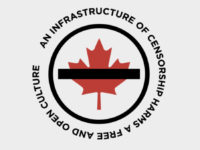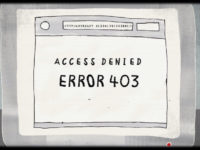Telus was not a charter member of the Bell website blocking coalition, but there was never much doubt that the last of the big incumbents would side with the application. Most of the independent and smaller telecom companies have opposed the proposal (and even the Canadian Wireless Telecommunications Association cannot bring itself to state that it supports the plan), but Canada is not known for competition among the big incumbents and this issue was no different. Indeed, the Telus submission supports the application, but relies on remarkably weak and somewhat head-scratching analysis to arrive at its conclusion that the proposal meets the necessary legal standards.
Post Tagged with: "freedom of expression"
UN Special Rapporteur for Freedom of Expression: Website Blocking Plan “Raises Serious Inconsistencies” With Canada’s Human Rights Obligations
The United Nations Special Rapporteur on the Right to Freedom of Opinion and Expression has filed an intervention with the CRTC expressing concern with the Bell coalition’s website blocking plan, which he confirms “raises serious inconsistencies with Canada’s obligations under Article 19 of the International Covenant on Civil and Political Rights and related human rights standards.” Special Rapporteurs are independent human rights experts with mandates from the Human Rights Council to report and advise United Nations Member States on human rights issues. While many supporters of the blocking plan have dismissed freedom of expression concerns, David Kaye, the expert the U.N. has tasked with making recommendations to member states warns that it may violate Canada’s human rights obligations in several ways.
The Case Against the Bell Coalition’s Website Blocking Plan: Canadians Take a Stand Against Site Blocking
The Bell playbook for its website blocking proposal has largely followed a familiar narrative. Much like the “Fair for Canada” campaign in 2013 that was designed to convince Canadians that keeping foreign competitors such as Verizon out of the country was in their best interest, the FairPlay Canada campaign similarly tries to make the case that a coalition of supporters want the CRTC to institute website blocking without court orders. The campaign clearly starts with Bell: they first raised the issue in September at a House of Commons committee hearing, obtained the legal opinion to support the application (it is addressed to Bell), and used a closely allied law firm to draft the application.
Why Fair Dealing Safeguards Freedom of Expression: The Case of the Vancouver Aquarium
Having discussed the importance of fair dealing for creators in yesterday’s post, today’s case looks at the link between freedom of expression and fair dealing. A recent case involving the Vancouver Aquarium placed the spotlight on how fair dealing can be used to safeguard freedom of expression, even when (indeed particularly when) a rights holder may prefer to use copyright to block the expression. In 2015, two film makers created a documentary on the Vancouver Aquarium called “Vancouver Aquarium Uncovered.” The film, which can now be viewed online, focuses on whales and dolphins in captivity. The Vancouver Aquarium filed a copyright infringement action, seeking to have the documentary removed from all public viewings and the deletion of photos and video clips shot at the aquarium.
The Case Against the Bell Coalition’s Website Blocking Plan, Part 6: Over-Blocking of Legitimate Websites
As the public concern over the Bell coalition website blocking plan continues to grow (both the Canadian Press and CBC this weekend covered the thousands of interventions at the CRTC), the case against the plan resumes with a review of why it is likely that it will lead to over-blocking of legitimate websites. Last week’s post highlighted the probable expansion of the scope of piracy for blocking purposes, a theme that continues today with a look at the many incidents over-blocking of legitimate sites sparked by website blocking (other posts in the series include the state of Canadian copyright, weak evidence on the state of Canadian piracy, the limited impact of piracy, and why the absence of a court order would place Canada at odds with virtually all its allies).
The danger of over-blocking legitimate websites raises serious freedom of expression concerns, particularly since experience suggests that over-blocking is a likely outcome of blocking systems. The Council of Europe Commissioner for Human Rights issued a report in 2014 on the rule of law on the Internet in the wider digital world, noting:











